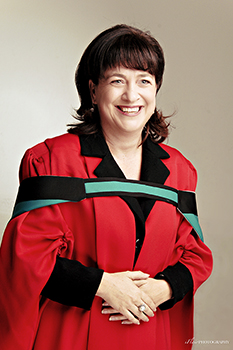Latest News Archive
Please select Category, Year, and then Month to display items
12 January 2024
|
Story Nonsindiswe Qwabe
|
Photo Sonia Small
 Since joining the UFS in 2008, Dr Grey Magaiza has worked extensively on approaches that can foster the socio-economic transformation of societies.
Since joining the UFS in 2008, Dr Grey Magaiza has worked extensively on approaches that can foster the socio-economic transformation of societies.
“The future should be one where communities can decide on their development agenda and futures. That’s the most important for me.” Dr Grey Magaiza, Deputy Director of the Centre for Gender and Africa Studies (CGAS) and Head of the Community Development programme on the Qwaqwa Campus, is passionate about capacitating communities to be agents of change and advancement. His vision for the future emphasises the empowerment of communities to take charge of their development by actively participating in decision making and the implementation of development projects that can improve their lives.
Since joining the UFS in 2008, Dr Magaiza has worked extensively on approaches that can foster the socio-economic transformation of societies. Over the years, he has crafted his research speciality into one that he is most proud of – being an interdisciplinary scientist immersed in the development of communities.
“I’m in a fortunate position of researching what I like. I say ‘fortunate’, because I’ve taken the time to understand what I’m passionate about, which is the overall field of rural livelihoods and livelihood futures – in short, community development. My research starts from an engaged university, understanding the elements that a university must use to enhance transformation and relevance to its immediate community in terms of development.”
One of the ways he has done this is by looking at social entrepreneurship as a development approach for young people in a rural setting. Through workshops with non-profit and civic organisations in Qwaqwa, Dr Magaiza has been helping these organisations to map out their needs and actively meet them through the involvement and support of external role players.
“We understand that communities are part of the national development agenda, but even that national agenda respects community knowledge and intentions and allows communities to shape their identity. A critical enabler of this is community organising. You bring back the capacity in communities to have dialogues on issues affecting them as spaces for engagement, knowledge exchange, and for people to just talk about their way forward.”
By enabling communities to define their development agenda, they can address their specific needs, challenges, and aspirations, he said. “When I look at livelihood futures, it’s quite an exciting aspect of my work – it’s like looking into a fortune tellers’ globe, because you’re not deciding for communities what they should do, but the communities themselves take those decisions.”
First Dementia Care Mapper in Africa receives international award
2015-11-17

The first Dementia Care Mapper from Africa,
Dr Sanet du Toit.
Photo: iFlair Photography |
“In one facility, four elders who needed minimal assistance to eat were provided with an opportunity to sit at a separate table, and enjoy their breakfast as preferred – that is, to spread bread with butter, jam or marmite; to add their own milk and sugar to their tea.”
Dr Sanet du Toit described a scenario where staff members at an old-age home implemented recommendations she made following an observation she conducted.
“We do not think twice about doing this but, within institutional care settings, these ’normal’ routines are often replaced with practices that could be viewed as ‘time savers’. For example: everyone gets milky, sweet tea to drink,” she explains.
Yet, by creating an environment where the elderly living with dementia were at liberty to determine the amount of milk in their tea, active participation meant an improved well-being.
She was honoured with the International Association of Homes and Services for the Aging (IAHSA) Award for Excellence in Applied Research on 1 September 2015, at a joint conference held by the Aged & Community Services Australia (ACSA) and IAHSA in Perth.
This exceptional Occupational Therapist from the University of the Free State (UFS) emerged as the first Dementia Mapper from Africa. Dementia Care Mapping is a method used internationally to assess with the purpose of improving the quality of care given to residents in institutionalised settings.
The IAHSA award acknowledged her person-centered care training and research in South African residential care facilities while working at the UFS as a senior lecturer from 2003 to 2013. Currently, she is based at the University of Sydney, but remains an affiliated lecturer at the UFS Department of Occupational Therapy.
In 1992, she graduated with a BA in Occupational Therapy at the UFS, and went on to further her studies at various institutions. Also, she is one of the founding directors of the Eden Alternative South Africa, an advocacy for older persons’ rights within old-age homes. Over the years, Dr du Toit has won numerous awards for her research.